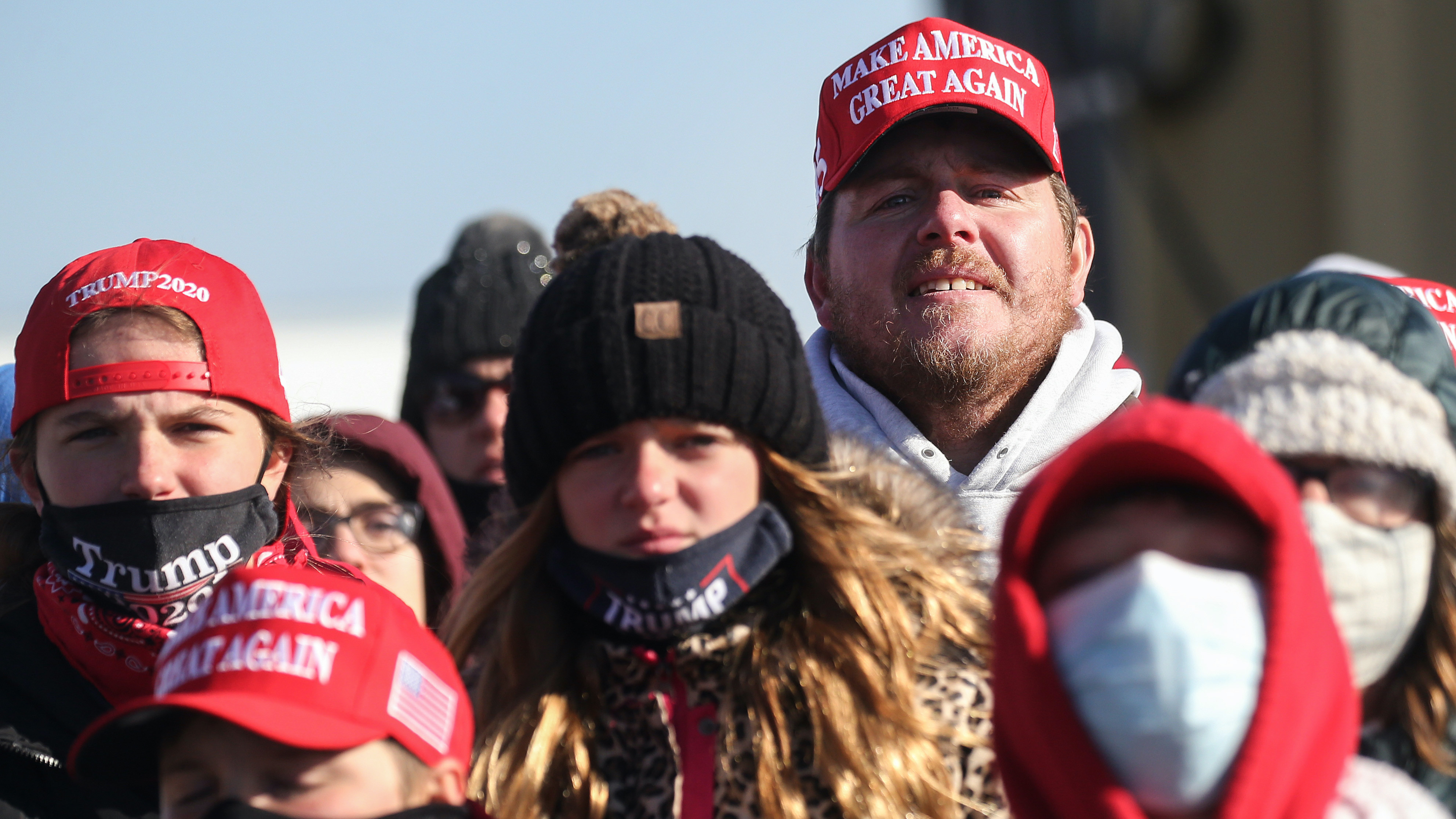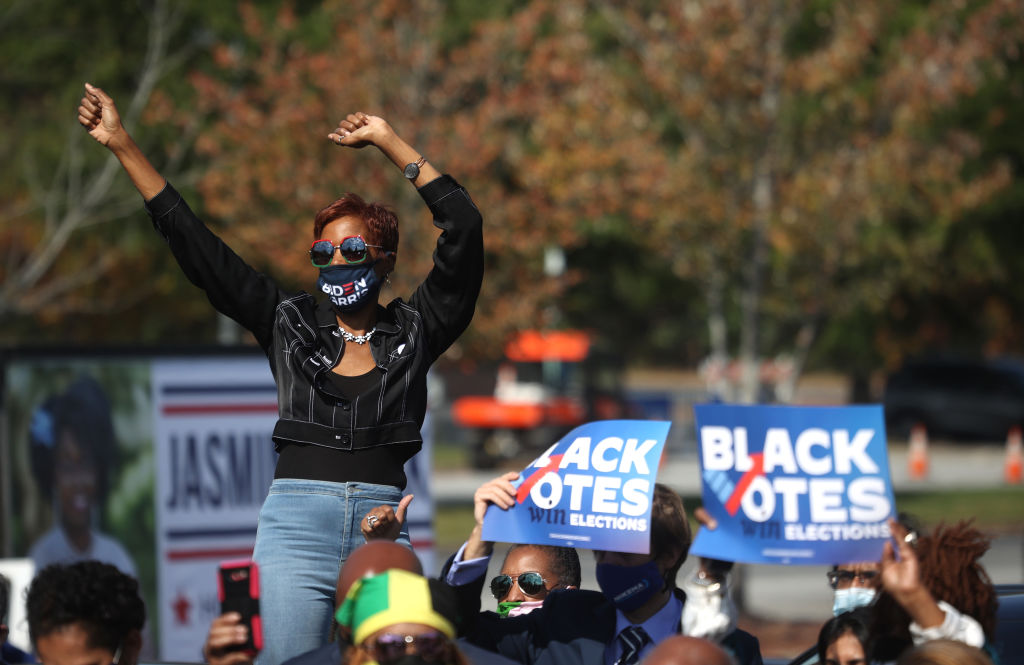
Supporters watch as President Donald Trump speaks at a campaign rally at Dubuque Regional Airport, November 1, 2020 in Dubuque, Iowa. /Getty
Supporters watch as President Donald Trump speaks at a campaign rally at Dubuque Regional Airport, November 1, 2020 in Dubuque, Iowa. /Getty
Editor's note: Andrew Korybko is a Moscow-based American political analyst. The article reflects the author's opinion, and not necessarily the views of CGTN.
The world's most anticipated election will be held on Tuesday, but it's impossible to accurately predict the outcome. Both parties are waging intense information warfare against the other so observers can't ascertain a clear state of the race as it objectively exists. Nevertheless, an understanding of the domestic context in which Americans are going to the polls, as well as some of the most important variables influencing their choice, can help formulate a forecast about what might happen at home after the vote ends.
The Democrats' unprecedented pressure campaign against President Trump hint that they're not as confident of former Vice President Biden's victory as they publicly make it seem otherwise they wouldn't resort to such tactics. In addition, Trump's recent rallies are attended by thousands of enthusiastic supporters unlike Biden's extremely restricted ones where only a few people are allowed to participate due to concerns about the COVID-19 pandemic.
These observations suggest that Trump has still retained a lot of support despite his controversial leadership style and the contentious policies that he's promulgated during his first term.
At the same time, however, there's no denying that America is also experiencing what can objectively be described as revolutionary conditions. The enormous Antifa and Black Lives Matter (BLM) protests that have spread all throughout the country over nearly the past half year show that there's more grassroots resistance to Trump than against any American president in history.

Supporters of Democratic Vice Presidential Nominee Sen. Kamala Harris (D-CA) hold campaign signs during a drive-in campaign event at the Infinite Energy Center, November 1, 2020, Duluth, Georgia. /Getty
Supporters of Democratic Vice Presidential Nominee Sen. Kamala Harris (D-CA) hold campaign signs during a drive-in campaign event at the Infinite Energy Center, November 1, 2020, Duluth, Georgia. /Getty
Their outrage stems not only from their sincere belief that he's secretly a fascist and racist, but also because of everything else that he represents in their eyes. They're convinced, whether rightly or wrongly, that he's a threat to all that America is supposed to stand for.
Both parties' supporters have been radicalized over the past four years, and violent clashes between them are becoming increasingly common in cities all across the country. This worsening domestic security situation and polar opposite views over the best way to respond to it will surely influence how Americans vote.
Other factors include deep fear of the future that the other candidate has promised with respect to sensitive issues such as abortion, the role of Big Tech in the information sphere, and the Second Amendment. This election is also a referendum on Trump's handling of the COVID-19 pandemic and his criticism of globalization processes.
Most reports agree that there are more swing states at play than last time, and with mail-in voting reaching record heights as a result of the pandemic, America might have to wait several days or even weeks after the polls close Tuesday night to know the outcome in those crucial races. There's been intense speculation that the Supreme Court might ultimately end up deciding on a related issue of pivotal significance in this regard, hence the importance of Justice Amy Coney Barrett's recent confirmation following Justice Ginsberg's passing in September. This gives the conservatives a super majority, and they might thus rule in Trump's favor.
Having addressed all of this, it should also be said that a blowout by one of the two candidates can't be discounted. That would be the ideal scenario which wouldn't lead to any doubt about the legitimacy of this election like the scenario of the Supreme Court determining the winner might disastrously do. Even so, both sides' supporters are so radicalized at the moment because of how important this election is for America's future that they might still provoke unrest if their preferred candidate loses.
Taking all of this into account and barring a blowout, America might have to wait at least a few days before it finds out who its next president will be. This greatly increases the likelihood of worsening unrest, which the authorities might not be able to contain without Trump partially imposing martial law in the most affected areas. The country's long-simmering socio-economic and political fault lines are at risk of exploding if there's any doubt about the ultimate outcome's legitimacy, though it can only be hoped that cooler heads will prevail at all levels from the grassroots up to the presidency so that the scenario of intense civil unrest is averted.
(If you want to contribute and have specific expertise, please contact us at opinions@cgtn.com.)